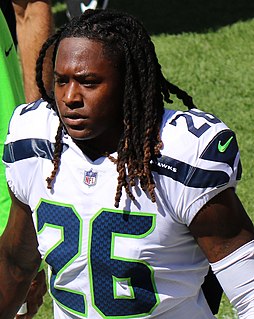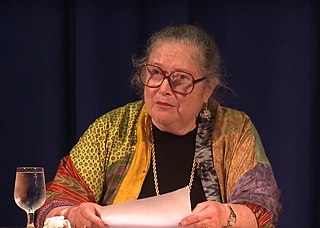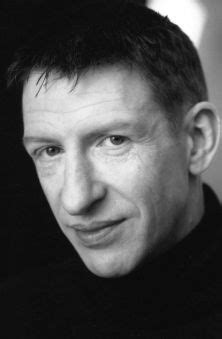A Quote by Clarence Darrow
We are born and we die; and between these two most important events in our lives more or less time elapses which we have to waste somehow or other. In the end it does not seem to matter much whether we have done so in making money, or practicing law, or reading or playing, or in any other way, as long as we felt we were deriving a maximum of happiness out of our doings.
Quote Topics
Any
Any Other Way
Between
Born
Die
Does
Doings
Done
End
Events
Felt
Happiness
Important
Important Events
In The End
Law
Less
Less Time
Lives
Long
Making
Making Money
Matter
Maximum
Money
More
More Or Less
Most
Much
Other
Our
Our Lives
Out
Playing
Practicing
Practicing Law
Reading
Seem
Somehow
Time
Two
Waste
Way
Were
Whether
Which
Related Quotes
I feel like the closest that we get to fulfilling our calling is making a difference in other people's lives. I feel like it's different for everybody. Our purpose and our calling are different. We're all called to do different things. But some way, somehow, it has to be impacting other people. If not, what are you doing? How does it have an impact? How does it have an eternal impact? It has to be investing in other people, somehow making a difference in their lives. When we do that, I really believe that we'll fulfill why we're here and what we're supposed to do.
To those of us who are not theologians, does it matter whether a thing is ordained or merely allowed? Are events that seem out of control caused by God? Or does He allow them to occur at the hands of human beings? You can spend a lot of time pondering that one and end up pretty much where you started. In either case, the purpose remains the same - our sanctification. God is in the business of making us walking, breathing examples of the invisible reality of the presence of Christ in us.
We become so caught up in the busyness of our lives. Were we to step back, however, and take a good look at what we’re doing, we may find that we have immersed ourselves in the “thick of thin things.” In other words, too often we spend most of our time taking care of the things which do not really matter much at all in the grand scheme of things, neglecting those more important causes.
I thought about all of the things that everyone ever says to each other, and how everyone is going to die, whether it's in a millisecond, or days, or months, or 76.5 years, if you were just born. Everything that's born has to die, which means our lives are like skyscrapers. The smoke rises at different speeds, but they're all on fire, and we're all trapped.
As the Hindu gods are 'immortal' only in a very particular sense - for they had born and they die - they experience most of the great human dilemmas and often seem to differ from mortals in a few trivial details... and from demons even less. Yet they are regarded by the Hindus as a class of beigns by definition totally different from any other; they are symbols in a way that no human beign, however 'archetypal' his life story, can ever be. They are actors playing parts that are real only for us; they are masks behind which we see our own faces.
Our possibilities of happiness are already restricted by our constitution. Unhappiness is much less difficult to experience. We are threatened with suffering from three directions: from our own body, which is doomed to decay and dissolution and which cannot even do without pain and anxiety as warning signals; from the external world, which may rage against us with overwhelming and merciless forces of destruction; and finally from our relations to other men. The suffering which comes from this last source is perhaps more painful to us than any other.
Our days are numbered. One of the primary goals in our lives should be to prepare for our last day. The legacy we leave is not just in our possessions, but in the quality of our lives. What preparations should we be making now? The greatest waste in all of our earth, which cannot be recycled or reclaimed, is our waste of the time that God has given us each day.
There is a sequence of events in our lives and so there's a temporal aspect to our experience that brings by itself, sense into the story. In other words, you were not walking before you were born and you were not doing X and Y before you did something else first. So there's a sequencing of events that imposes a certain structure to the story.
I don't want the words to be naked the way they are in faxes or in the computer. I want them to be covered by an envelope that you have to rip open in order to get at. I want there to be a waiting time -a pause between the writing and the reading. I want us to be careful about what we say to each other. I want the miles between us to be real and long. This will be our law -that we write our dailiness and our suffering very, very carefully.
We meditate alone but live our lives with other people; a gap is inevitable. If our path is to lead to less suffering, nd much of our suffering is with other people, then perhaps we need to reexamine our sole commitment to these individual practices... As our individual pracitce deepens, it may yiled true ease. But whether we practice meditation in seclusion or independently alongside other meditators at a meditation group or retreat, individual meditation approaches the confusion and pain of our relational lives only indirectly.
When we haven't the time to listen to each other's stories we seek out experts to tell us how to live. The less time we spend together at the kitchen table, the more how-to books appear in the stores and on our bookshelves. But reading such books is a very different thing than listening to someone' s lived experience. Because we have stopped listening to each other we may even have forgotten how to listen, stopped learning how to recognize meaning and fill ourselves from the ordinary events of our lives. We have become solitary; readers and watchers rather than sharers and participants.
We may not know what each day has in store for us. We could be gone tomorrow. Any minute could truly be our goodbye. But we do have this moment. This time. Today. Right now. It takes way more effort to shell out hate then it does to allow love to flow freely in our lives. After all, it's what we were born to do.
I wondered what it does to each of us to spend the majority of our waking hours doings things we'd rather not do, wishing we were outside or simply elsewhere, wishing we were reading, thinking, making love, fishing, sleeping, or simply having time to figure out who the hell we are and what the hell we're doing.
It is so important to remember that, as we travel through life, there will be so many events which we can`t control. These are things that seemingly alter our lives forever or become barriers for living a life of fulfillment. It`s important to remember that the ultimate experience of life is not to be controlled by events. We all have difficult events in our lives - the loss of family members, economics, stress, litigation, government interference in our businesses, health challenges. Remember that it is not the events that shape our lives, but, rather, the meaning we attach to them.




































